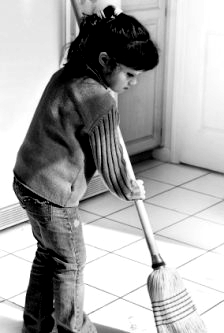The right words bring willing helpers
 If teachers or parents want their young children to help out, research shows the choice of words is all-important.
If teachers or parents want their young children to help out, research shows the choice of words is all-important.
A study has been conducted featuring two experiments on about 150 three-to-six-year-olds from a variety of cultural and socioeconomic backgrounds.
In both experiments, an adult experimenter began by talking to children about helping.
The only difference between the two studies was that in one, helping was referred to with a verb (e.g., “Some children choose to help”), while in the other, it was referred to with a noun (e.g., “Some children choose to be helpers”).
The children began playing with toys. While they were playing, the adult provided four opportunities for the youngsters to stop and help the experimenter - to pick up a mess, open a container, put away toys, and pick up crayons that had spilled on the floor.
In each case, the children had to stop playing to help.
The researchers also gathered baseline data, looking at the extent to which a child chose to help when helping gad not been mentioned.
Children who heard the noun wording (helper) helped significantly more than children who heard the verb wording (help).
When the experimenter talked to youngsters about helping, using verb wording, the children didn't help any more than when the experimenter did bring up helping at all.
“These findings suggest that parents and teachers can encourage young children to be more helpful by using nouns like helper instead of verbs like helping when making a request of a child,” says Christopher J. Bryan, assistant professor of psychology at the University of California, San Diego, who worked on the study.
“Using the noun helper may send a signal that helping implies something positive about one's identity, which may in turn motivate children to help more.”








 Print
Print